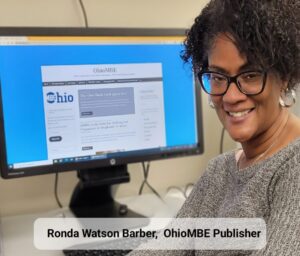By Ronda Watson Barber
Columbus City Schools recently reported $80,945,394.61 in capital improvement spending. The numbers tell the story of who benefits—and who doesn’t.
Caucasian-owned companies took home $17,949,906.49. By comparison, African American-owned businesses received $4,673,457.59. That’s nearly a four-to-one gap.
The district reports a total LEDE (Local Economically Disadvantaged Enterprises) spend of $25,330,244.19, or 31.3%. On paper, that might look like progress, but we need to ask the harder questions:
- What outreach efforts were made to include more Black-owned vendors?
- What good-faith efforts were taken to close the spending gap?
- Who is monitoring the district’s inclusion policy and holding leadership accountable?
- Who selected the vendors, and by what criteria?
I’ve spoken with multiple certified LEDE vendors—women and Black business owners—who said they never received any notification about the summer projects. Columbus City Schools doesn’t advertise in OhioMBE to the extent it did under past administrations, and worse, the district does not directly notify vendors of contracting opportunities. Instead, vendors are required to navigate a third-party system, Public Purchase.
One vendor admitted they knew nothing about Public Purchase and had only been notified of opportunities through the district’s Outreach Coordinator. But here’s the problem: according to the superintendent, the Outreach Services Office is being “built from the foundation”—even though the program has existed for more than 20 years. In reality, the office has been dormant since March 2024.
So while CCS takes time to “rebuild” its outreach, Black vendors are left waiting without personalized notification of opportunities. The district demands timely property tax payments from the Black community—yet when it comes to delivering equitable access to contracting opportunities, delays and excuses are the norm.
Instead of strengthening outreach, some CCS employees and directors dismiss legitimate concerns, bristling at what they call my “uppity attitude” for daring to hold them accountable. But the facts remain: OhioMBE reaches more small and Black-owned businesses than any other publication in Ohio. If the district were serious about inclusion, it would utilize every available resource to ensure equity, not hide opportunities behind closed doors.
The Board of Education continues to vote on legislation that excludes local Black vendors, even though Black residents pay the property taxes that fund these projects. Elders and families in our community struggle to pay those tax bills, while their dollars flow into the hands of firms with little connection to the district.
And soon, Columbus City Schools will be back, asking voters to support another tax levy. But how can they expect the Black community to support them when they refuse to support Black businesses?
This is more than inequity—it’s taxation without participation.
Columbus City Schools has both a fiscal and moral obligation to reinvest in the Black community, which makes up the majority of its student population. Until then, trust will remain broken, and future levies should face serious scrutiny. Right now, those tax dollars flow into the hands of white-owned businesses—and the suburban families they help sustain—instead of being reinvested in the neighborhoods footing the bill.
just my thoughts…rwb
Discover more from OhioMBE
Subscribe to get the latest posts sent to your email.
